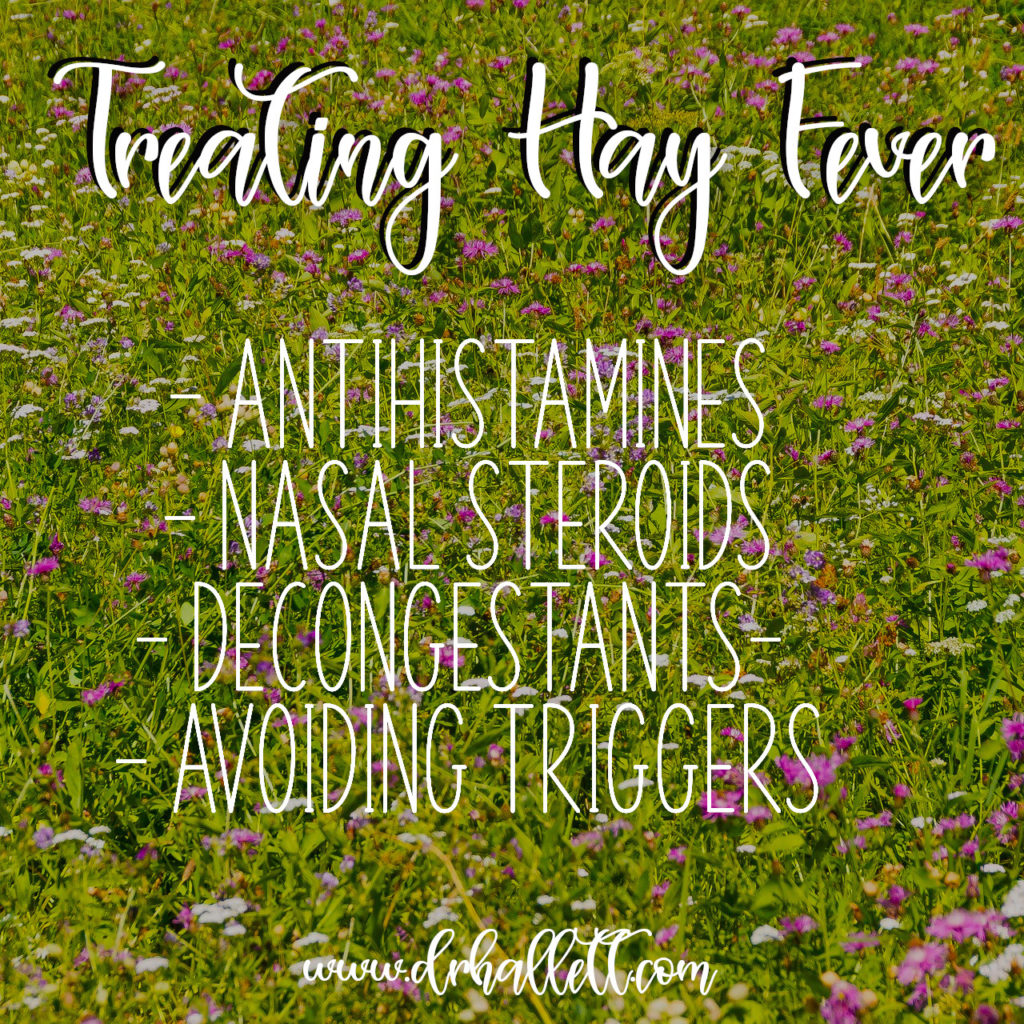Hay Fever Symptoms
The symptoms of hay fever, or allergic rhinitis, can range from just annoying to truly impacting your quality of life. Some symptoms of Hay Fever include: sneeing, stuffy nose, runny nose, itchy nose, eyes, mouth, throat or ears and even the roof of your mouth.
Hay fever can occur throughout spring, summer and fall months. In the spring the main cause is usually tree pollen. Summer causes of hay fever include grasses and, later in summer and fall weeds are usually the culprit.
Controlling Spring Pollen Symptoms

While avoiding the allergens that trigger symptoms is the best way to control hay fever, your allergist / immunologist may prescribe an allergy medication to manage your hay fever symptoms. These medications include nasal corticosteroid sprays, antihistamine pills, nasal antihistamine sprays or decongestant pills.
The majority of allergy medications for pollen symptoms work best if started before tree pollen is in the air and allergy symptoms develop. If you start taking allergy medications before you first come into contact with spring allergens, the medication can prevent the release of histamine and other chemicals. As a result, allergy symptoms may be much less severe.
Healthy Tips
• Avoid using a decongestant nasal spray for longer than three or four days in a row. It may cause your stuffy nose to become worse and cause you to become dependent upon the medication.
• See your allergist to find out which medication is right for you.
Other Resources
A complete list of medications used to treat allergies can be found in the AAAAI Drug Guide.
For long-term relief of allergy symptoms, talk to Dr. Hallett about oral immunotherapy, otherwise known as allergy drops. Allergy drops are as effective as injections, with more safety and convenience. Learn more about them here.